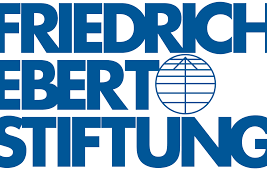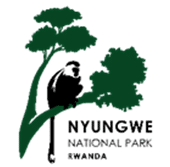
Terms of Reference for the Project Final Evaluation
consultancy @Friedrich-Ebert-Stiftung posted 5 days ago in consultancy Shortlist Email this opportunityJob Detail
-
Job ID 13401
Description
TERMS OF REFERENCE FOR THE PROJECT FINAL EVALUATION
Purpose
The purpose of this evaluation is to review the implementation and assess the extent to which the objectives of the project “Social dialogue 4 Sustainable Development (SD4SD): Promoting Effective Social dialogue, Strengthening Social Protection and Enforcing the national and international labor standards in Rwanda were achieved. The evaluation will assess the relevance, effectiveness, efficiency, and sustainability of the project in supporting Cotraf and its affiliated trade union members to contribute to the promotion of effective social dialogue, social protection, and the implementation of national and international labor standards in Rwanda. The evaluation results will support the improvement of the services provided and future projects and activities implemented by FES and Cotraf.
Scope
The evaluation will cover the entire period of the project, from May 2022 to April 2025, with no exclusions. The universally recognized values and principles of human rights and gender equality need to be integrated at all stages of an evaluation, in compliance with the general conditions applicable to European Union-financed grant contracts for external actions. Therefore, the review will assess how gender considerations were included in the project design and implementation:
- Assess the project’s design, scope, implementation status and the achievement of the expected outcomes.
- Collate, analyse, and document key lessons learned, and challenges experienced and highlight best practices during the implementation period.
- Assess coordination and collaborative arrangements with co‐applicants, European Delegation of external partners, institutional strengthening, beneficiary participation, replication, and sustainability of the program.
- Background
The overall goal of the project is to contribute to the promotion of effective social dialogue, social protection, and the implementation of national and international labor standards in Rwanda
The project is implemented jointly by FES Rwanda as the Coordinator and Cotraf Rwanda as the beneficiary. The beneficiary of this project is Cotraf and its affiliated trade union members from Mining, Education and Agriculture (Tea) sector.
The objective of the project is pursued by achieving the following results:
OP1.1: Representatives of COTRAF and member unions have deepened their knowledge on the main provisions of national/international labour norms, principles of social dialogue and collective bargaining techniques and have developed a strategy to foster the participation of women in union structures
OP1.2: COTRAF and its member unions are equipped to conduct comprehensive advocacy campaigns and have conducted three campaigns in the tea, mining, and education sectors
OP1.3: Local grassroots union representatives and district council members have received support in their efforts to better address female workers, to conclude a collective bargaining agreement, and to lobby for the inclusion of decent work as key aspect of local development plans
OP2.1: Studies, policy recommendations and information materials provide an analytical basis for discussion among tripartite stakeholders on decent work as a precondition for sustainable economic growth
OP2.2: National conferences/public dialogues establish a regular exchange between stakeholders from business, government, NGOs, academia, media and give TUs the opportunity to contribute their expertise
OP2.3: Young professionals (“Actors of Tomorrow”) have received intensive training on social protection and have developed their own contributions to the decent work debate
OP2.4: Information on SDG8 and ILO core labor standards has been made accessible and disseminated to a wider audience
Both the objective and the expected accomplishments are achieved by the implementation of the following activities:
- To develop training materials on the importance of social dialogue & collective bargaining
- To conduct at least 25 capacity building workshops for TU representatives, employers and district council representatives on the main provisions of international labour standards, the labour code, national law on social security, win-win collective bargaining, advocacy techniques, and gender equality.
- To organize an exchange of best practices on social dialogue, minimum wage, collective bargaining, and strategy development with union experts from another country.
- To conduct a gender audit to identify current barriers to women’s effective participation in union structures and make unions more responsive & inclusive for women
- To design a new website for COTRAF and its member unions
- To conduct 3 training workshops on the use of online / social media for (digital) campaigning
- To produce and distribute 20,000 leaflets on the main provisions of labour/social security laws and occupational safety regulations in the mines.
- To produce and distribute 10,000 leaflets on the code of conduct of social dialogue and collective bargaining (in the three official languages).
A.1.2.5.: To produce, promote and disseminate a “Simple guide to Rwandan labour law” in Kinyarwanda
A.1.2.6: To organize 3 advocacy campaigns for living wages in the tea, mining and education sector and implementation/ ratification of ILO conventions.
- To train 450 local grassroots union representatives on national / international labour laws, minimum wage, collective bargaining techniques (including special trainings for female representatives).
- To set up 2 pilot offices of proximity (tea industry, Western Province / mining sector, Northern Province) to support local TU committees in their work of organizing workers (with emphasis on female workers) to advocate for the conclusion of collective labour agreements
- To train local TU leaders in the district councils (or Joint Action Forums) of 8 districts, and to conduct workshops with other district council members on planning and evaluation of local policies & programs for sustainable development.
- To commission 3 scientific studies on labour conditions in the mining, tea, and education sector
- To develop and present a set of policy recommendations based on the findings of the studies to a broad range of stakeholders (political decision makers, members of parliament, relevant ministries)
- To produce targeted information material (video clips) explaining the concrete advantages that better social protection/effective social dialogue yield for both employers and government.
- To conduct 4 national conferences with regional & international experts on the importance of social dialogue & min. wage, displaying the benefits of win-win collaboration between employers & TU representatives.
- To conduct 12 public dialogues on labour related topics with representatives from TUs, employers, government, media and civil society to promote an inclusive dialogue and build mutual trust.
- To set up a “youth academy” for social protection to promote decent work principles among young professionals.
- To present a report on “youth visions on decent work” elaborated by Youth Academy participants to a broad range of stakeholders (political decision makers, members of parliament, relevant ministries
A 2.4.1: Re-printing and distribution of the “Time for 8” Comic Book (developed by FES in 2020) on SDG 8, the 8 ILO Core Conventions and the 8 main articles of the Rwandan labour laws
A.2.4.2: To produce and disseminate 5 audio pieces and 1 video version of the “Time for 8 comic book”
The budget of the project is 580,000 euros and was financed from the EUD for the following program under the program “CIVIL SOCIETY ORGANIZATIONS (CSOS) AS ACTORS OF CHANGE AND HUMAN RIGHTS PROMOTION”. This included: Human resources, travel, equipment and supplies, Local office cost, Services Cost and others.
Issues
The evaluation criteria are relevance, efficiency, effectiveness and sustainability:
Relevance:
- Was the project relevant to the objective of SD4SD to support Cotraf to contribute to the promotion of effective social dialogue, social protection and the implementation of national and international labor standards in Rwanda?
- To what extent were the activities consistent with global and national priorities and the program of work of the trade union in Rwanda?
- How relevant was the collaboration with other entities/ Stakeholders at the local and international level?
- To what extent did the Project respond to the priorities and needs of the beneficiary trade unions? How relevant was it to the target groups’ needs and priorities?
- Was the project design and implementation appropriate for meeting the project’s objective?
- Did the project apply gender and rights-based approaches in the design, implementation and results of the activities?
- Did FES and COTRAF advocate for gender equality in this area of work through the project?
Effectiveness:
- Did the project achieve the results expected during the project design in terms of the planned activities, outcome, and impact?
- What value have FES & Cotraf’s efforts added in this area of work?
- What were the challenges/ obstacles on achieving the activities objective and expected accomplishments?
- To what extent are the outputs consistent with and relevance to the overall objective and expected accomplishments?
Efficiency:
- Did the project achieve its objectives within the anticipated budget and allocation of resources?
- How could the use of resources be improved? Would you propose any alternatives to achieve the same results? If yes, which ones?
- Were the activities implemented according to the planned timeframe?
- Were the activities implemented in the required sequence needed to ensure the greatest impact of the project?
- Were the resources sufficient to achieve the intended outcomes?
- How does the project compare with other similar efforts from other actors financed by the union (if any)?
Sustainability:
- How is the stakeholders’ engagement likely to continue, be scaled up, replicated or institutionalized?
- To what extent do the partners and beneficiaries ‘own’ the outcomes of the work?
- To what extent are the objectives of the activity still valid? How can the activity be replicated?
Methodology
The evaluation will be conducted on the basis of:
- Desk study of project materials: all relevant project documents, including project descriptions, reports, publications, etc. and other information will be provided to the evaluator.
- Interviews with key stakeholders (face-to-face, via telephone and zoom meeting) including: relevant Government officials, project consultants, participants of project trainings and workshops, and other relevant stakeholders (list of contacts and details to be provided by the project manager). A gender-responsive methodology, methods and tools, and data techniques are selected. The evaluation findings, conclusions and recommendations reflect a gender analysis. The evaluation report of a maximum 15-20 pages will summarize the findings, conclusions and recommendations of the evaluation. An executive summary (max. 2 pages) will summarize the methodology of the evaluation, key findings, conclusions and recommendations.
Deliverables and timeline
|
Date |
Activity/ deliverables |
|
March |
Selection of the consultant |
|
1April- 7April |
Desk review & Delivery of inception report including design of survey |
|
8-10 April |
Feedback on the inception report by the Project Team |
|
11- 20 April |
Data Collection& Data Analysis |
|
22th April |
Participation in the final validation workshop |
|
25th April |
Draft Report |
|
27th April |
Comments back to the evaluator after review by the project team |
|
29th April |
Final Report |
V.II Criteria for Evaluators
Evaluators should have:
- An advanced university degree or equivalent background in relevant disciplines
- Specialized training in areas such as evaluation, project management, social statistics, advanced statistical research and analysis.
- Demonstrated relevant professional experience in design, management and conduct of evaluation processes with multiple stakeholders, survey design and implementation, and project planning, monitoring and management.
- Good knowledge of and experience in decent work capacity-building projects.
- Demonstrated methodological knowledge of evaluations, including quantitative and qualitative data collection and analysis for end-of-cycle project evaluations.
- Fluent in written and spoken English. Knowledge of Kinyarwanda is highly desirable.
- Demonstrated experience in applying gender perspective and human-rights based approach to evaluations.
- Evaluators should declare any conflict of interest to FES before embarking on an evaluation project, and at any point where such conflict occurs
Applications to be sent to the following email : info@fes-rwanda.org and copy to programmanager-3@fes-rwanda.org
Deadline: 07th April 2025
Anne Felmet
FES Country Director , Rwanda
